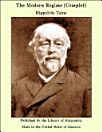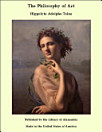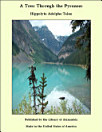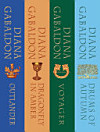The French Revolution (Complete)
Acerca deste livro eletrónico
Two causes excite and maintain the universal upheaval. The first one is food shortages and dearth, which being constant, lasting for ten years, and aggravated by the very disturbances which it excites, bids fair to inflame the popular passions to madness, and change the whole course of the Revolution into a series of spasmodic stumbles.
When a stream is brimful, a slight rise suffices to cause an overflow. So was it with the extreme distress of the eighteenth century. A poor man, who finds it difficult to live when bread is cheap, sees death staring him in the face when it is dear. In this state of suffering the animal instinct revolts, and the universal obedience which constitutes public peace depends on a degree more or less of dryness or damp, heat or cold. In 1788, a year of severe drought, the crops had been poor. In addition to this, on the eve of the harvest, a terrible hail-storm burst over the region around Paris, from Normandy to Champagne, devastating sixty leagues of the most fertile territory, and causing damage to the amount of one hundred millions of francs. Winter came on, the severest that had been seen since 1709. At the close of December the Seine was frozen over from Paris to Havre, while the thermometer stood at 180 below zero. A third of the olive-trees died in Provence, and the rest suffered to such an extent that they were considered incapable of bearing fruit for two years to come. The same disaster befell Languedoc. In Vivarais, and in the Cevennes, whole forests of chestnuts had perished, along with all the grain and grass crops on the uplands. On the plain the Rhone remained in a state of overflow for two months.






